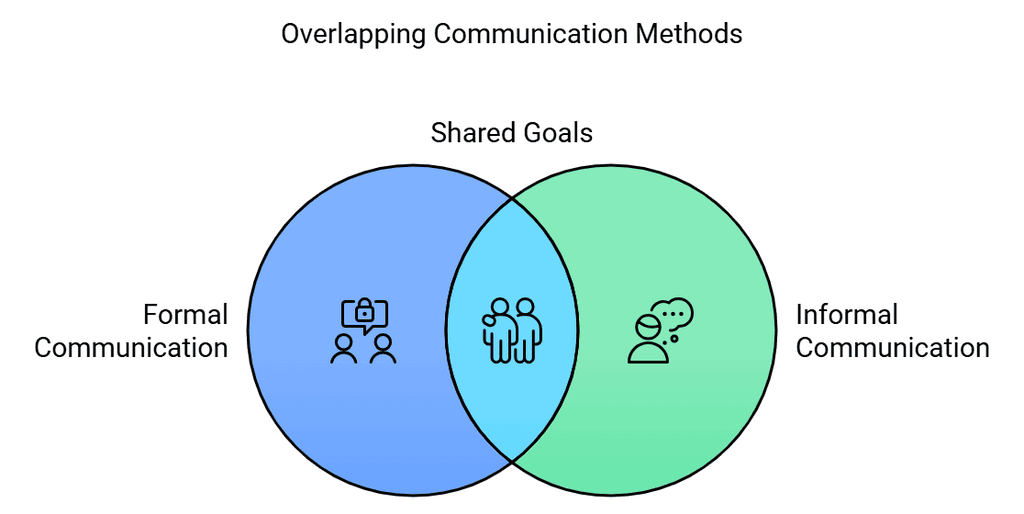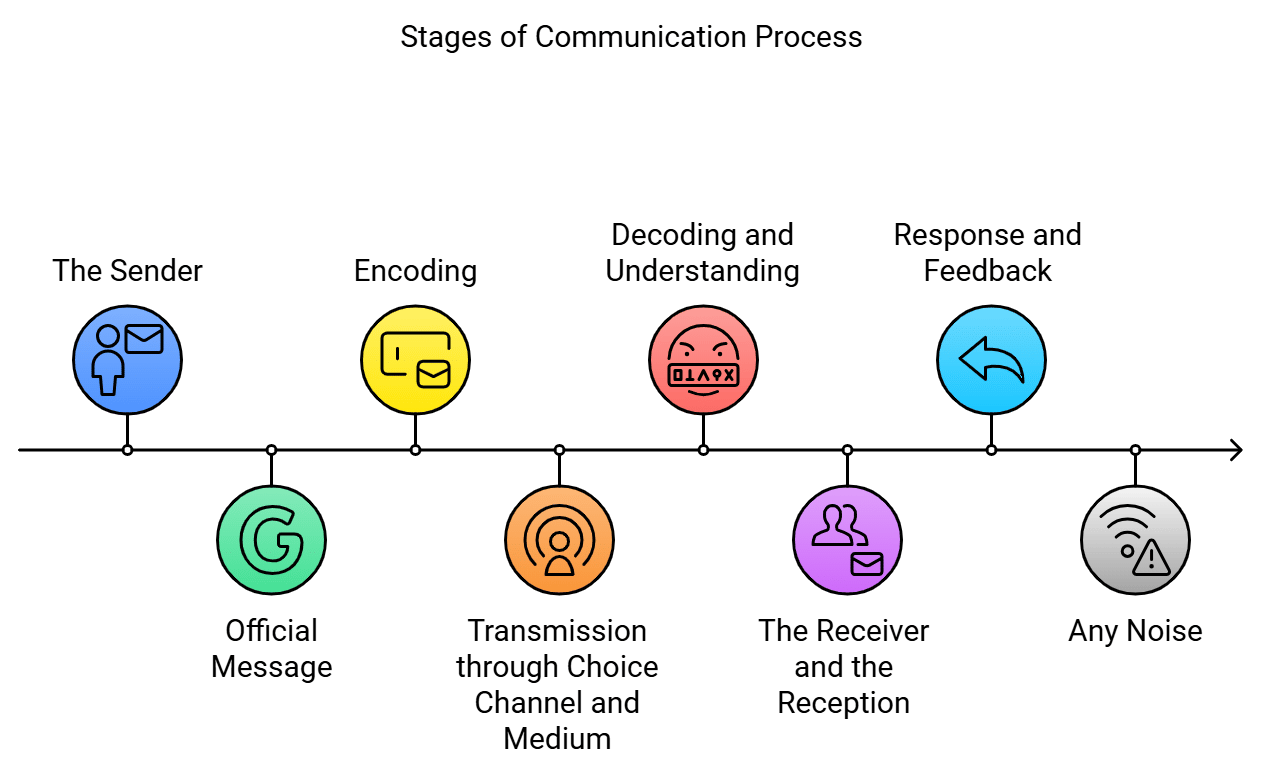UGC NET Exam > UGC NET Notes > Communication for UGC NET > Notes: Process of Communication
Process of Communication - Communication Notes
Communication
Communication is a process through which an individual can communicate common views, ideas, thoughts, and other sorts of information pieces to other members of society. There are different types of communication and some of those different types of communications are:

Formal Communication
- This e type of communication takes place through official channels within the formal body of the organization.
- It can take place both in writing or through oral forms.
- There are also two different types of formal communications.
- These are horizontal and vertical communication.
- Vertical communication is the type of communication which flows upwards to downwards or vice versa in a formal body of the organization.
- The horizontal or lateral conversation takes place across various divisions.
Informal Communication
- This type of communication includes all sorts of communications which take place without the structure of a formal body of the organization.
- There are many experts who refer to this type of communication as having a ‘grapevine’ structure.
- This type of conversation is often distorted and takes place rapidly.

Stages of Communication
The Sender
- This is the first stage through which the transmission of information takes place.
- And during this stage, there is the sender whose main task is to generate the message and ensure that the message reaches the receiver through the process of transmission.
Official Message
- This is the second stage of the communication and this stage is just concerned with the message which needs to go through the processes of encoding, transmission, and reception.
Encoding
- The third stage of communication is encoding and during this stage, the message goes through the process of encoding by the sender.
- This means that the message is encoded symbolically in forms of words, pictures, gestures, or through other important means.
The Transmission through Choice Channel and Medium
- This stage refers to the manner in which the encoding of the information takes place.
- This can also be looked on as a stage which is concerned with the manner in which the information goes through the process of transmission.
- The medium of communication could be a post, telephone, fax, and many other means. It is important for the sender to choose an appropriate mean for proper reception to take place.
Decoding and Understanding
- Decoding is the process through which the receiver converts the message to understand the information which was intended to be communicated.
- And this stage of decoding and understanding always takes place after encoding.
- It is followed by the stage of reception.
The Receiver and the Reception
- The sixth stage is that of reception and during this stage, the receiver gets the message and tries to make proper sense of it.
- The receiver is also the last member which is involved in the chain of encoding, transfer of information, and reception.
Response and Feedback
- After the reception stage, the receiver sends across some sort of information which depicts that the information has been received and understood by the receiver.
- The stage of response and feedback is very important as it depicts whether the processes of encoding and reception have taken place properly or not.
Any Noise
- This is the last stage and this stage refers to any sort of disturbance or obstruction which might have taken place throughout the process of communication.
- For effective communication to take place, it is important for an individual to ensure that no external noise exists in the surrounding environment.
The document Process of Communication - Communication Notes is a part of the UGC NET Course Communication for UGC NET.
All you need of UGC NET at this link: UGC NET
|
6 videos|29 docs|5 tests
|
FAQs on Process of Communication - Communication Notes
| 1. What is the process of communication? |  |
Ans. The process of communication involves several key components: the sender, the message, the medium, the receiver, and feedback. It begins when the sender encodes a message and transmits it through a chosen medium. The receiver then decodes the message, and feedback is provided to the sender, completing the communication cycle.
| 2. What are the different types of communication? |  |
Ans. There are primarily three types of communication: verbal, non-verbal, and written. Verbal communication involves spoken words, non-verbal includes body language and gestures, while written communication encompasses text, emails, and reports. Each type plays a crucial role in effective interaction.
| 3. Why is feedback important in the communication process? |  |
Ans. Feedback is essential in the communication process as it allows the sender to know whether the message was understood correctly. It helps in clarifying misunderstandings, improving future communications, and ensuring that the message has achieved its intended purpose.
| 4. What are the barriers to effective communication? |  |
Ans. Barriers to effective communication can include physical distractions, language differences, emotional barriers, cultural differences, and perceptual barriers. These obstacles can prevent the clear exchange of ideas and lead to misunderstandings between the sender and receiver.
| 5. How can one improve their communication skills? |  |
Ans. Improving communication skills can be achieved through active listening, practicing empathy, being aware of non-verbal cues, seeking feedback, and refining clarity in both verbal and written messages. Engaging in conversations and public speaking can also enhance confidence and effectiveness in communication.
Related Searches

















